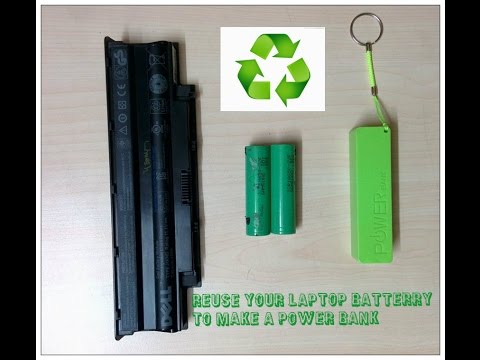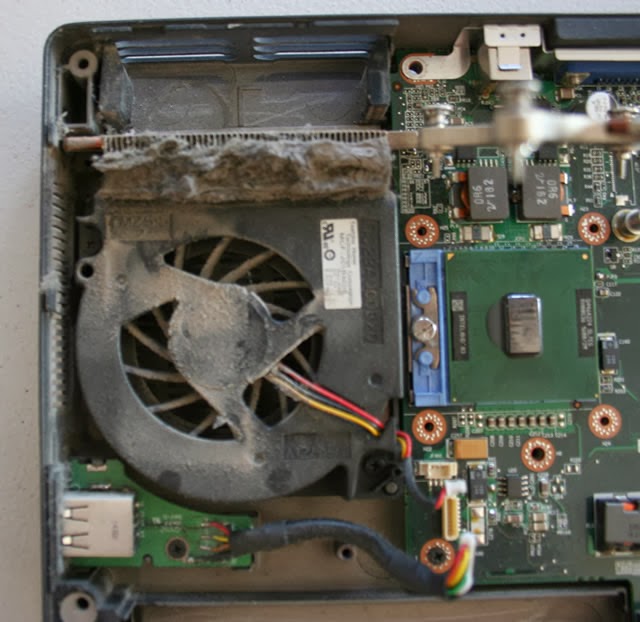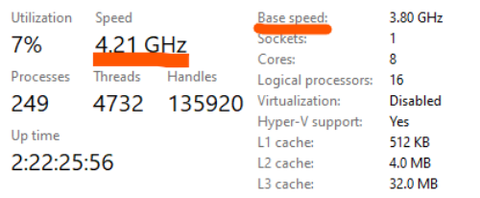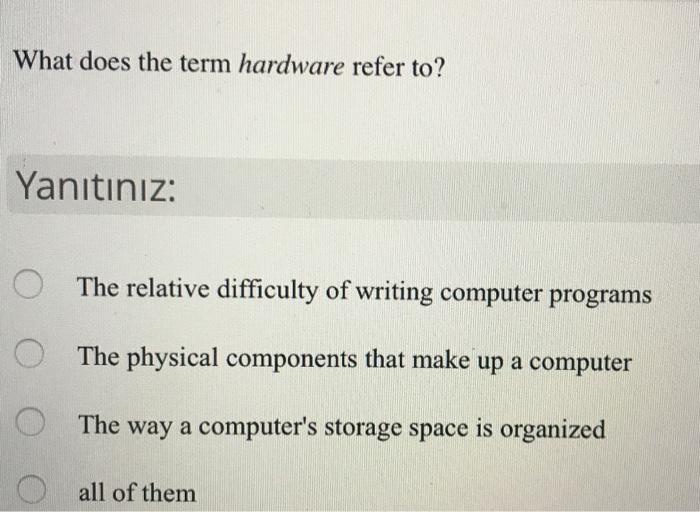Unexpected Uses And Safe Disposal of Old Laptop Batteries: A Comprehensive Guide
Introduction
With electronics' rapid evolution, obsolete laptops are frequently ending up in landfills. Responsible laptop users often ask, 'what to do with old laptop batteries?' The answer is far from throwing them away. It involves repurposing, safe disposal, and even recycling. This guide will walk you through unexpected uses for old laptop batteries and how to ensure their safe and environment-friendly disposal.
What's Inside a Laptop Battery?
Laptop batteries, mainly composed of Lithium-ion cells, are more than just an energy storage unit. You might be surprised to know what goes into the making of these powerhouses. Let's delve in:
- The Primary Component: The lithium-ion cells in the battery are the key players. They're partly responsible for power storage and discharge.
- The Building Blocks: The cells of the battery contain lithium salts and an electrolyte that facilitates the movement of lithium ions.
- The Metals Within: The laptop battery is home to diverse metals. Cobalt and nickel are prominent constituents that have substantial recycling value.
- The Hidden Genius: The embedded microcontroller is a smart addition to the battery. It helps regulate the energy flow for optimal performance and safety.
Understanding these components can help you appreciate the technological marvel that a laptop battery is. Whether it's providing power to your device, being repurposed for a DIY project, or being dismantled for recycling, every part of the battery serves a valuable purpose. Even after its primary function is done, the life of a laptop battery can extend much further with a little creativity and responsible disposal.
Why Do Laptop Batteries Eventually Fail?
Over time, various factors converge to impair a laptop battery's capability to hold and supply charge, resulting in most users needing to replace their batteries after a few years. Here's a look at why laptop batteries eventually fail:
Chemical Aging
• Chemical Aging of Lithium-ion Cells: Lithium-ion cells, which are the primary components of a laptop battery, are not immune to the detriment of time. They undergo a process called 'chemical aging,' which negatively affects their performance, contributing to their gradual inability to store energy.
Wear and Tear from Regular Use
• Wear and Tear: Just like any other device or gadget, laptop batteries also experience physical wear and tear, resulting from daily use. This factor gradually reduces their efficiency, ultimately leading to their functional decay.
Negative Impact of Overcharging and Improper Storage
• Impacts of Overcharging: Overcharging laptop batteries is one of the common reasons behind their depreciation. Over time, this practice deteriorates the battery's potency leading to a shorter lifespan.
• Detrimental Effects of Improper Storage: Battery storage conditions significantly influence their longevity. For instance, exposure to high temperatures can hasten the degradation process, reducing their overall lifespan.
Internal Software Issues
• Software Issues: Occasionally, internal software glitches can also lead to diminished battery performance. Software issues may prevent the battery from operating optimally, eventually causing a decrease in power retention capacity.
These factors collectively contribute to the inevitable decline of laptop batteries, making it important for users to adopt suitable practices for extending battery longevity and ensuring proper disposal or recycling when they reach the end of their life cycle.
How Can You Safely Utilize Old Laptop Batteries in DIY Projects?
Instead of discarding, your old laptop batteries can find a new lease of life through ingenious do-it-yourself (DIY) projects. There's an array of possible applications, including designing a power bank for your mobile devices, creating an LED torch for emergencies, and even crafting a handy battery organizer. Let's dive into each scenario:
Building Your DIY Power Bank
A resourceful approach is to morph those old laptop batteries into a DIY power bank. This project not only puts your old batteries to use but simultaneously offers a reliable backup power source for your smartphone or tablet. Here's how you proceed:
1. Collect necessary materials: a laptop battery, a power bank case that fits your battery, a power bank circuit board, and assembly tools.
2. Take out the laptop battery cells from its casing.
3. Place the cells in the power bank case and connect them to the circuit board following a specific battery configuration.
4. After assembling, recharge the power bank before using it to power your devices.
Crafting a Handy Emergency LED Torch
Rechargeable LED torches have become essential in power outage situations. You can craft one out of old laptop batteries. This project demands safety precautions due to potential risks involved in handling batteries. To build your emergency LED torch, follow these steps:
1. Extract the cells from the old laptop battery.
2. Connect the LED lights to the cells.
3. Ensure the connection is secure and generates enough power to light up the LED.
4. Place the light in a safe casing to prevent accidental short-circuits.
Remember, exercising caution when dealing with batteries and electrical connections is paramount for safety.
Making a Convenient Battery Organizer
Finally, you can transform your laptop batteries into a practical battery organizer. Here's a quick guide:
1. Carefully pop open the laptop battery case and extract individual cells.
2. Position these cells as compartments within a sturdy container.
3. Use these compartments to store small batteries, ensuring each one fits snugly and won't roll around.
Using old laptop batteries for DIY projects is a testament to sustainable thinking and engineering creativity. Whether you construct a power bank, make an LED torch, or create a battery organizer, always ensure safety first.
How Can Old Laptop Batteries Be Recycled or Disposed of Safely?
When it's time to let go of old laptop batteries, it's crucial to ensure their safe disposal or recycling. This step is significant in making sure these potentially hazardous materials are handled correctly, mitigating harm to both our health and the planet. The process entails locating a nearby recycling facility and following critical safety procedures for battery disposal and recycling.
Seek Out Your Closest Recycling Facility
A crucial aspect of safely discarding used laptop batteries involves finding a suitable location for their disposal or recycling. Here's a step-by-step guide to help you accomplish this:
- Start by checking local waste management regulations. They can offer valuable information and directives regarding the disposal of hazardous waste such as laptop batteries.

- Next, identify potential recycling centers in your locality that accept laptop batteries. This task may involve online research or contacting the appropriate waste management department in your community.
- Consider scheduled pickups that may be available in your area for the collection of hazardous waste.
Key stats to keep in perspective:
- The EPA estimates that recycling metals like those in your old laptop batteries can arguably be up to 13 times more efficient than sourcing from raw materials.
- A report from the Basel Action Network suggests that about 40% of the heavy metals and lead found in landfills originate from discarded electronics, including laptop batteries.
Mandatory Safety Measures for Battery Disposal and Recycling
Implementing safety measures during battery disposal and recycling is not just advisable but necessary. This practice ensures that potential hazards linked with these materials are efficiently mitigated. The essential safety tips include:
- Insulate the battery terminals: By using electrical tape, you can prevent accidental sparking that may cause fires or damage.
- Store batteries correctly: It's crucial to keep old laptop batteries in a cool and dry environment before their disposal.
- Never compromise the battery structure: Puncturing or attempting to dismantle the batteries can lead to hazardous consequences. Always leave this task to professionals in authorized recycling facilities.
In conclusion, the appropriate disposal and recycling of old laptop batteries embody a dual-purpose - taking care of our health and protecting planet Earth. Whether that’s by converting them into DIY projects or ensuring their safe and conscious disposal, every step taken is a building block towards a greener future.
Conclusion
Ultimately, the fate of your old laptop batteries lies in your hands. Whether you choose to repurpose them or put them on the path of safe disposal and recycling, you effectively contribute to a safer environment and robust electronics ecosystem. So the next time you wonder what to do with old laptop batteries, remember this guide's valuable insights.
Related FAQs about what to do with old laptop battery
What are the dangers of improper laptop battery disposal?
Improper disposal of laptop batteries can lead to potential environmental hazards as they contain heavy metals that can leach into the soil or water sources. Also, mishandling can result in a chemical leak, posing a fire hazard or skin injuries.
Are laptop batteries valuable for recycling?
Yes, laptop batteries contain valuable materials including aluminum, copper and various precious metals, which can be extracted and reused. Recycling is also environmentally responsible, reducing the need for mining new raw materials.
Where can I find battery recycling facilities near me?
You can find local battery recycling facilities by checking your local waste management regulations or website, contacting your local waste management department, or performing an online search for recycling centers in your area.







